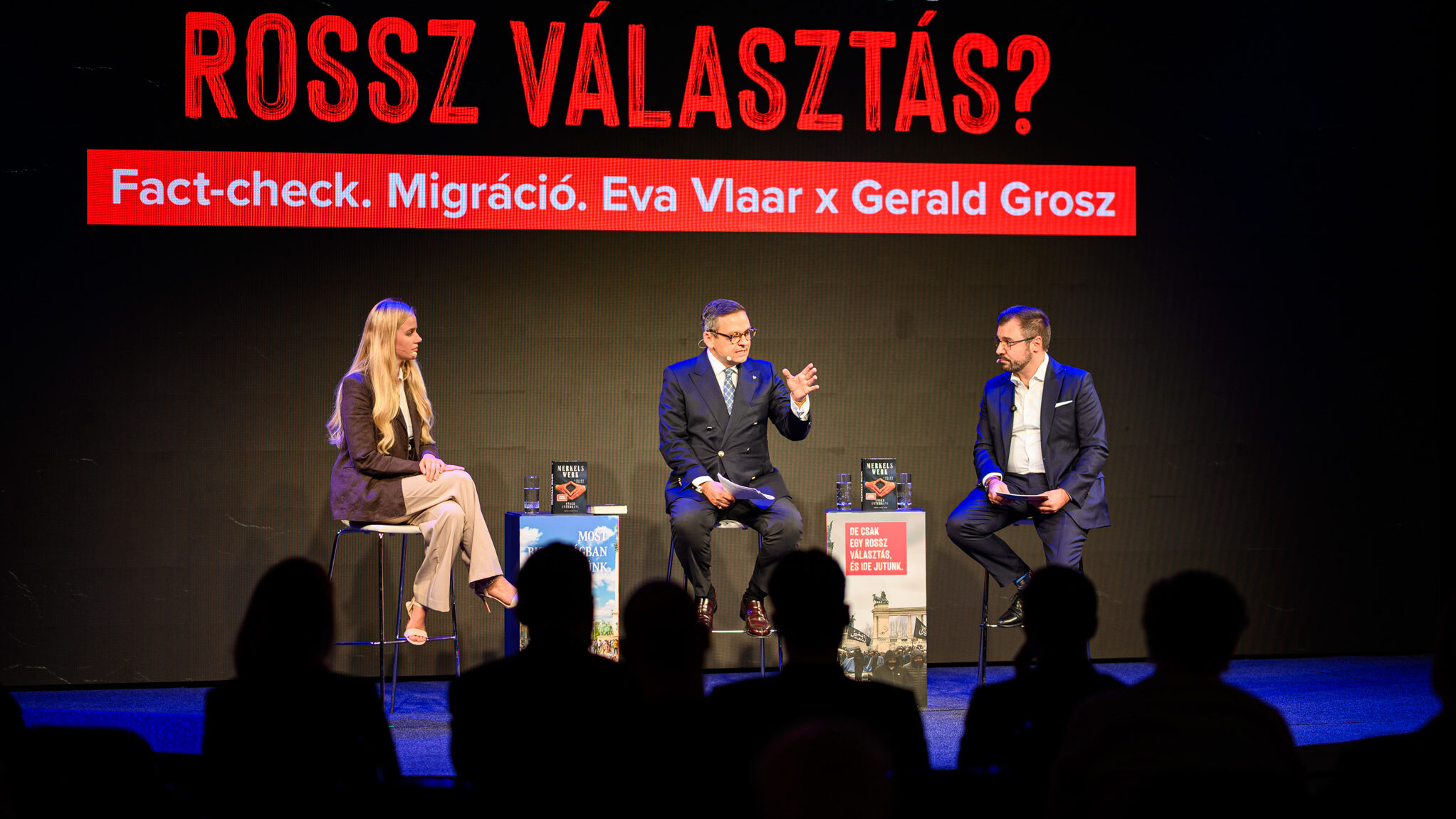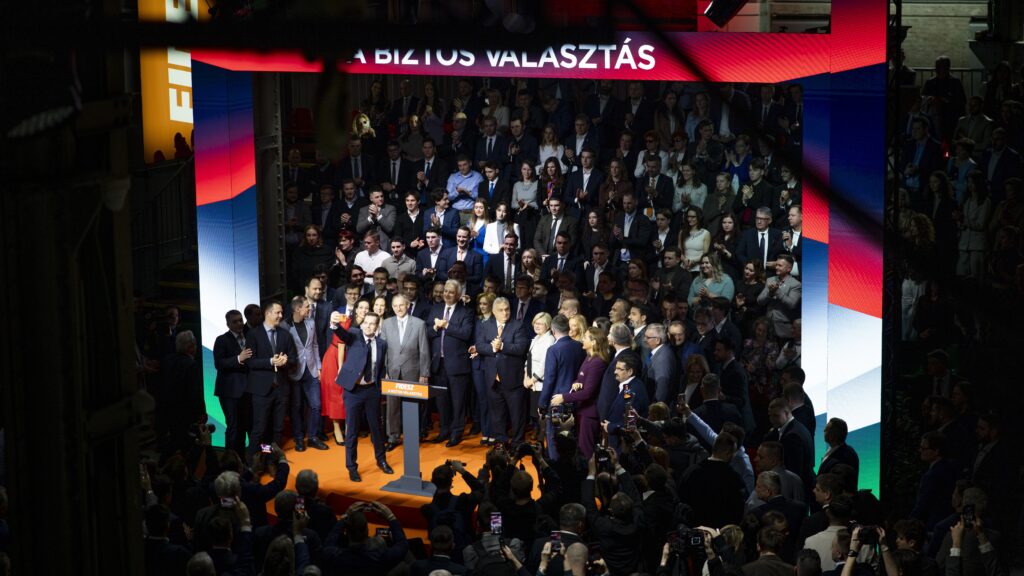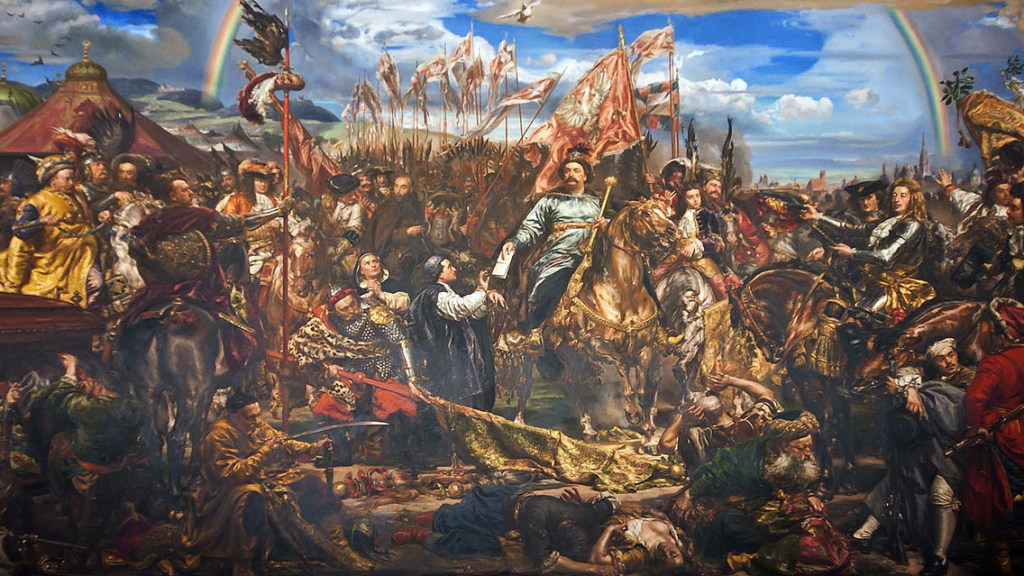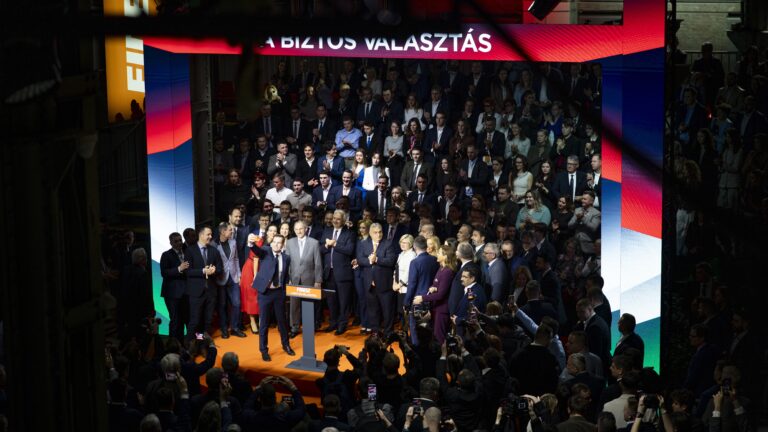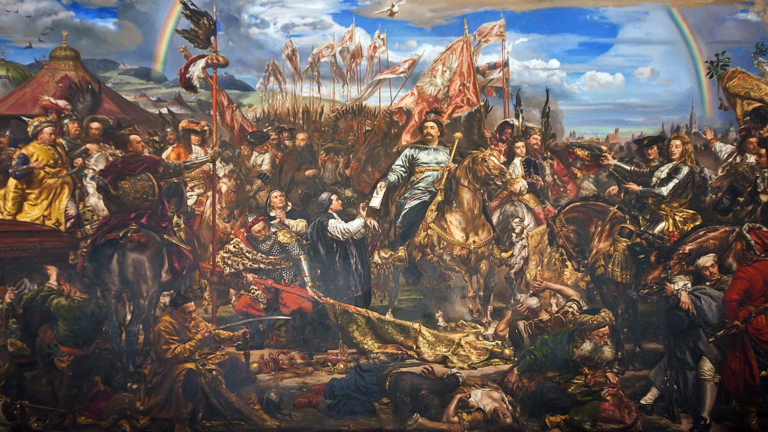Dutch right-wing political commentator and activist Eva Vlaardingerbroek and Austrian author and former politician Gerald Grosz held a thought-provoking and, at times, very intense discussion in Budapest on Wednesday, 1 October. The event, organized by the Center for Fundamental Rights, formed part of Grosz’s book tour for his latest work, Merkels Werk – Unser Untergang (Merkel’s Work – Our Downfall), which examines the consequences Europe now faces after the former German chancellor’s decision to allow millions of migrants into the continent.
Opening the discussion, host Miklós Szánthó, Director of the Center for Fundamental Rights, recalled that almost exactly ten years ago hundreds of thousands of migrants stormed Hungary’s southern border at Röszke and flooded the capital on their way to Western Europe. He pointed out that Prime Minister Viktor Orbán had made a decisive choice at that moment by closing the country’s borders. ‘In today’s panel, we learn what it is like when our leaders make bad decisions,’ Szánthó remarked, handing the floor to Vlaardingerbroek.
After greeting the audience in Hungarian, the Dutch activist emphasized that Hungary is ‘the only country left in Europe that represents what Europe once was.’ ‘I feel more at home here than in my homeland,’ she continued, adding that she would do ‘anything’ to help Hungarians avoid losing their country—just as the Dutch had lost theirs.
Grosz agreed, stating that Hungary has become a safe space for European citizens, children, the Jewish community, and also for homosexual people—a stark contradiction to the picture painted by Western mainstream and progressive media and politicians. ‘Today, Hungary is the better and safer Austria,’ he declared. ‘Hungary is the safe Europe as we knew it.’
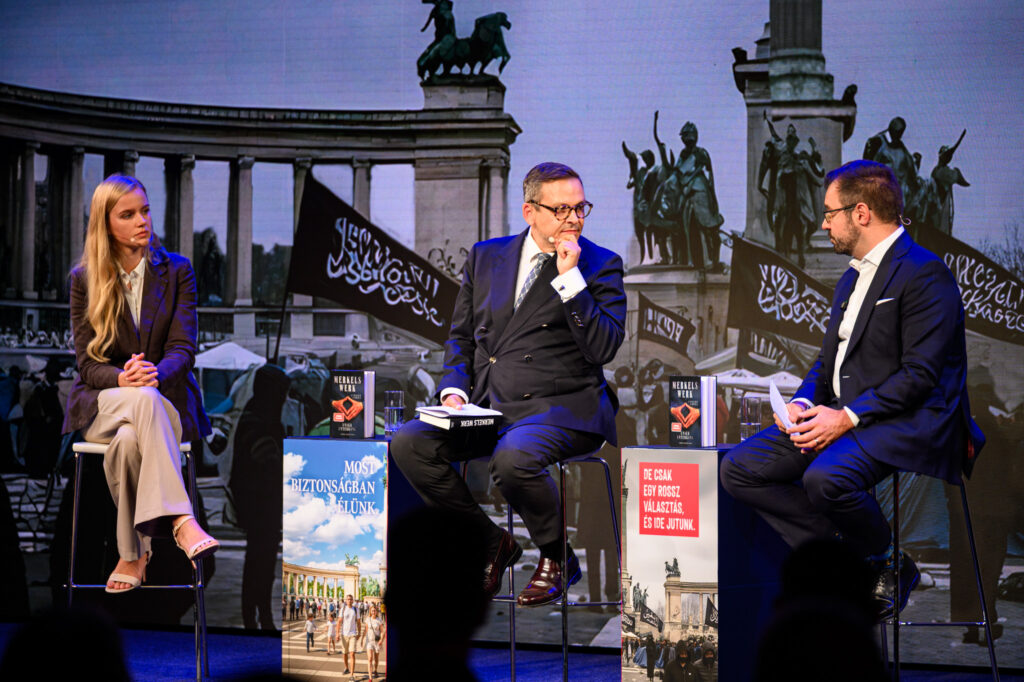
Turning to the oft-cited argument that mass migration is necessary to tackle demographic decline and save Europe’s economy, Grosz noted that in Germany two-thirds of welfare recipients are migrants who came to live off European taxpayers’ money. Vlaardingerbroek concurred, stressing the importance of ‘countering the diabolical lie that immigration is necessary’ to resolve the ageing-society problem. She argued that proper housing, education, and healthcare are no longer available to the indigenous population in parts of Western Europe—while they are for immigrants. This, she said, makes it harder for Europeans to have children, further accelerating the collapse of birth rates. ‘It is a downward spiral, a diabolical circle,’ she reaffirmed.
The discussion then turned to security issues related to migration. Grosz highlighted that the ‘children of Angela Merkel’ arriving in Austria are unwilling to integrate into the education system, refusing to participate in schooling or even learn German. ‘Reality begins in school and ends in prison,’ he warned. Vlaardingerbroek recalled her personal experience living with her parents in the Netherlands, noting that every time she went out her parents worried for her safety. Security problems, she stressed, are not confined to big cities but reflect a deeper structural problem. Grosz added that there is now a pronounced West–East divide in Europe on internal security, largely because of migration.
Viewing the problem through a civilizational lens, Vlaardingerbroek warned: ‘If we say that Europe has fallen, then we are lost. We need a lot of effort, a lot of good work, but there is still hope for Europe.’ She argued that those claiming Europe is already lost are part of the problem because they demoralize people. Grosz agreed, insisting that not every part of Europe is gone, pointing to Hungary and other Eastern European nations. ‘We should defend our values,’ he urged, recalling that back in 2015 Orbán was the only EU leader who defended European law.
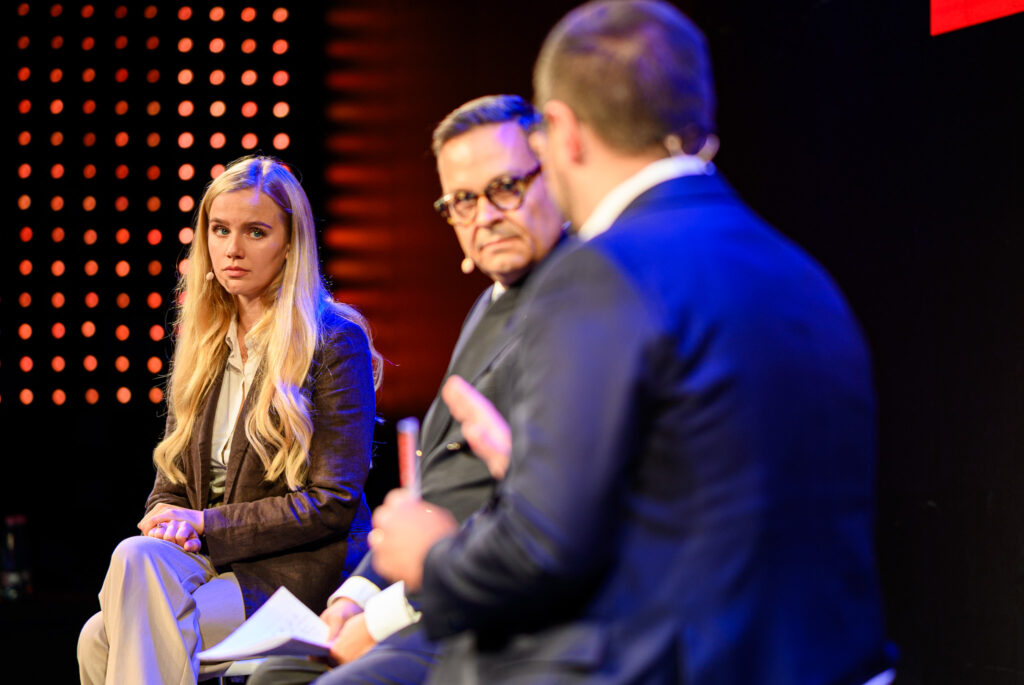
But who is responsible for today’s crisis? According to Vlaardingerbroek, it is difficult to name a single culprit, as the processes leading to the current chaos began right after the Second World War, when the human-rights regime that now prevents Western countries from effectively tackling mass migration was established. She argued that migration and the creation of mixed societies serve the interests of the globalist elite and Brussels, whose goal is ever greater centralization. Grosz agreed, adding that Europe is in desperate need of genuine conservative leaders such as Orbán, Alice Weidel, and Matteo Salvini.
Ironically, on the same day as the discussion, Angela Merkel was also in Budapest for the Hungarian launch of her 2024 book Freedom. The former chancellor even met Viktor Orbán, one of her fiercest EU rivals during her time in office. Vlaardingerbroek lashed out at Merkel, calling her visit to Hungary a ‘shame’. ‘She destroyed our continent. How dare she come here and enjoy what she wanted to destroy?’ she asked furiously. She added that such anger is not only justified but necessary: ‘If we don’t get angry, things won’t change.’
Concluding the panel, both Grosz and Vlaardingerbroek appealed directly to the Hungarian people, urging them to appreciate the safety they enjoy thanks to the government’s strict migration policies. ‘If you want freedom, if you want safe cities, your identity, vote for Orbán,’ Grosz said. ‘You are on the right track—don’t change,’ Vlaardingerbroek concluded.
Related articles:

